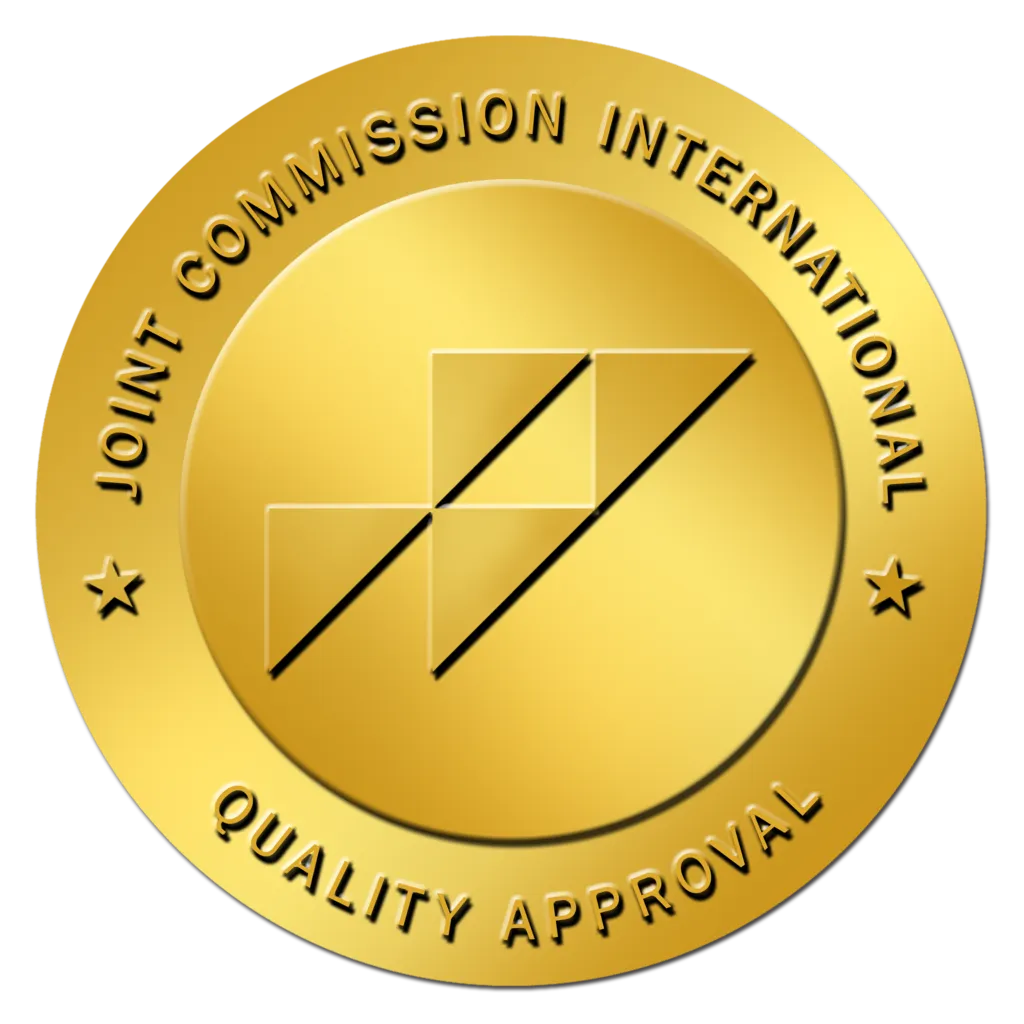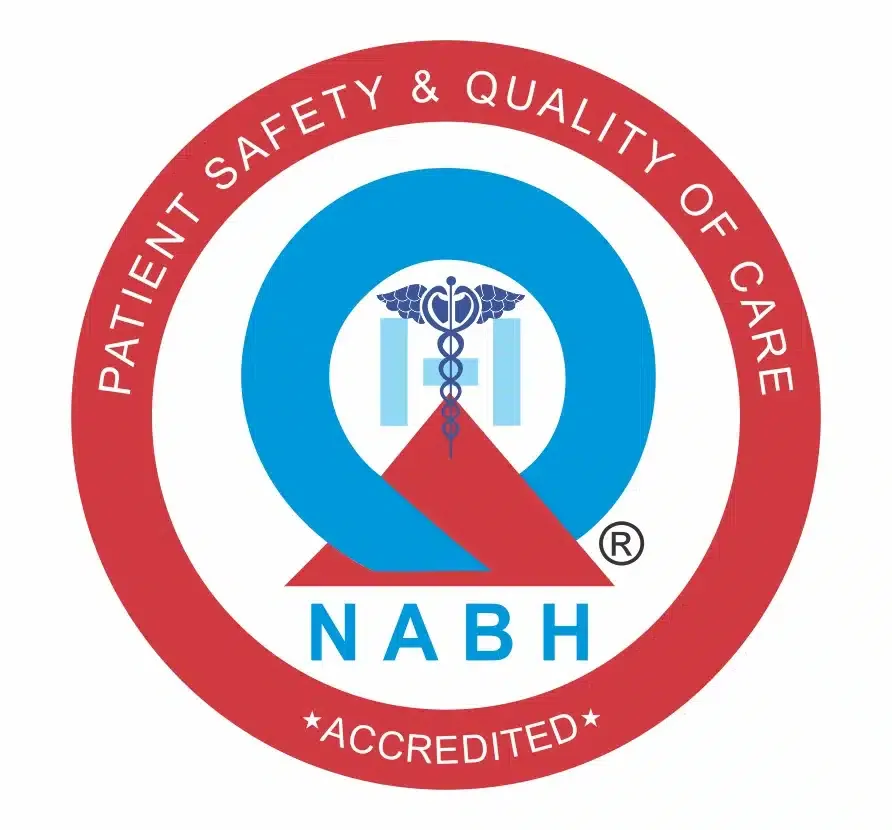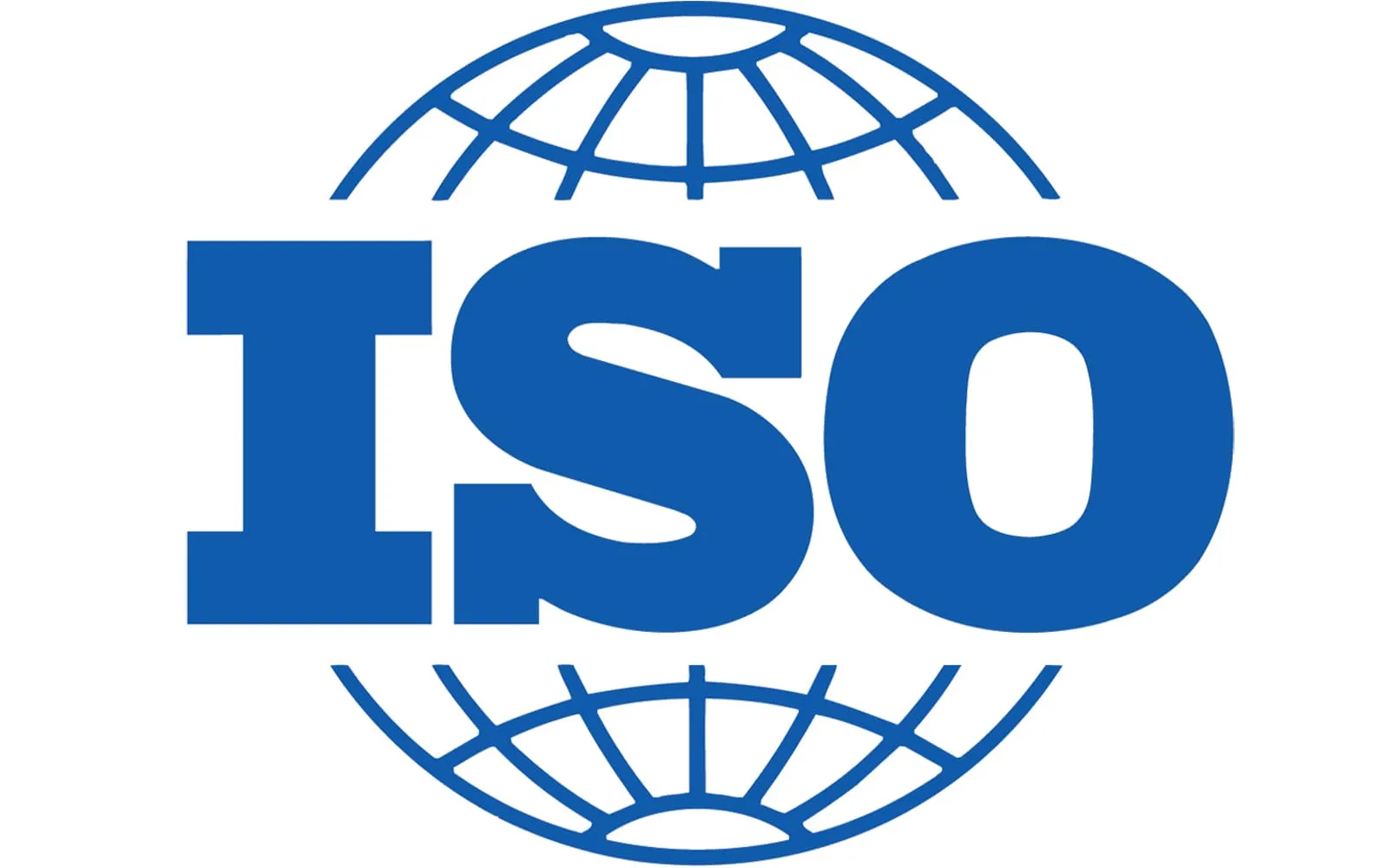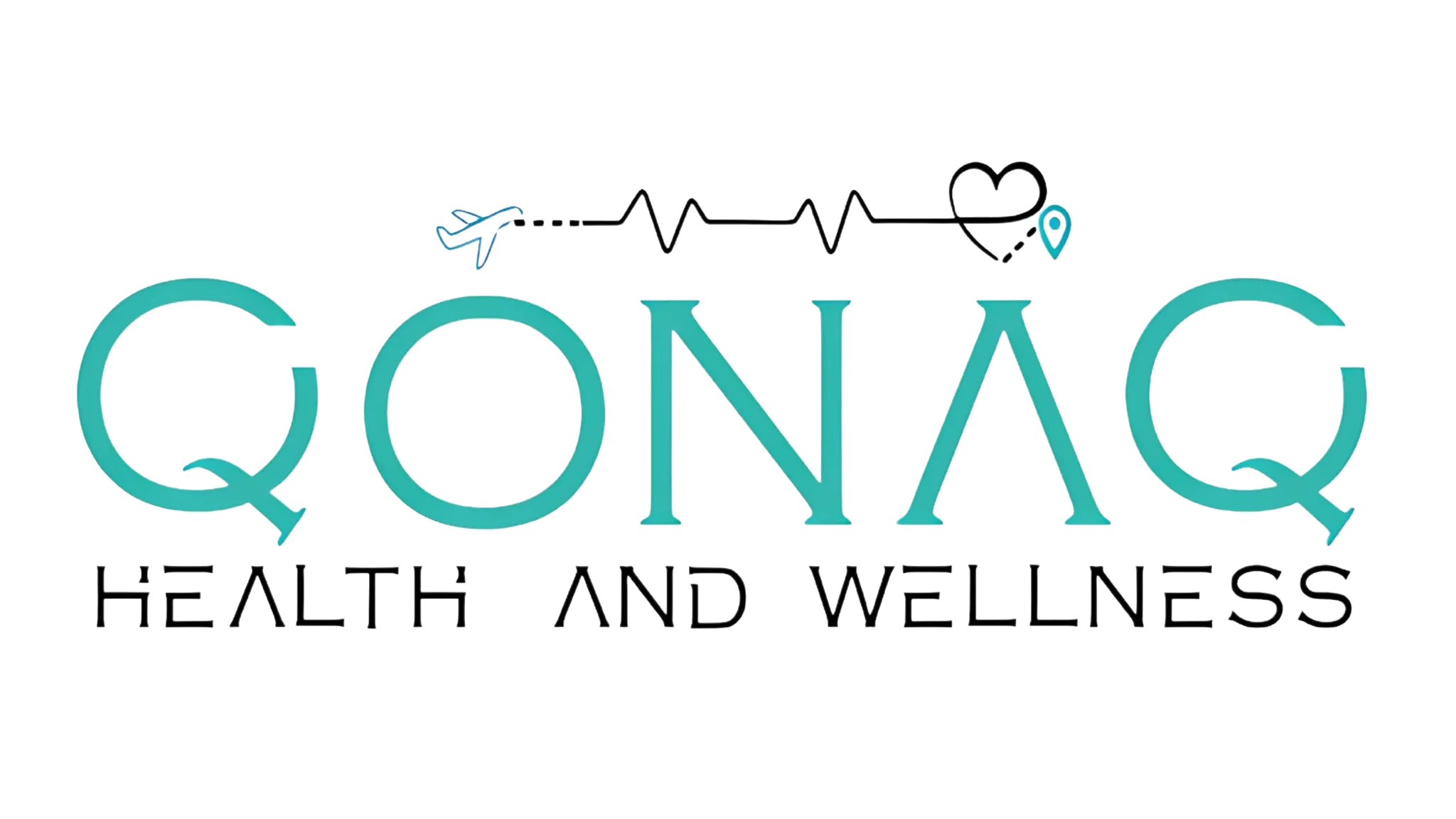
Coronary Artery Bypass Graft Surgery - CABG Cost in India
About Coronary Artery Bypass Graft Surgery - CABG
What is Coronary Artery Bypass Grafting (CABG)?
Coronary artery bypass grafting is a type of heart surgery used to treat people with severe coronary artery disease (CAD). In this condition, arteries supplying oxygen-rich blood to the heart muscle become narrowed or blocked due to plaque buildup. It reduces blood flow and increases the chances of chest pain, heart attacks, and even sudden cardiac death.
CABG works by creating a new path for blood to reach the heart. During the surgery, a healthy blood vessel is taken from another part of the body, such as the leg, chest, or arm, and used to bypass the blocked sections of the coronary arteries. This new "graft" restores normal blood flow, reduces symptoms, and helps improve heart function.
Key Points About CABG:
- It is a major but commonly performed heart surgery around the world.
- CABG is usually recommended when multiple arteries are blocked or when blockages cannot be treated effectively with angioplasty or stenting.
- The procedure can involve one (single bypass), two (double bypass), three (triple bypass), or more grafts, depending on the number of arteries that need to be bypassed.
- CABG has been shown to improve survival, reduce symptoms like chest pain (angina), and lower the risk of heart attacks in patients with advanced coronary artery disease.
Why is CABG Surgery Needed?
Coronary artery bypass grafting is typically recommended for patients with severe blockages in their coronary arteries. When these arteries become blocked, the heart does not get enough oxygen, which can lead to angina, breathlessness, fatigue, and even heart attacks.
CABG is often necessary when lifestyle changes, medications, and less invasive procedures like angioplasty are not enough to restore healthy blood flow. It is a critical surgical intervention that can prevent future heart attacks, relieve symptoms, and significantly improve quality of life.
CABG is Usually Recommended When:
- Multiple coronary arteries are blocked and limiting blood flow to the heart.
- The left main coronary artery is severely narrowed or blocked. This artery supplies a large portion of blood to the heart muscle.
- The patient has diabetes along with significant coronary artery disease.
- Previous treatments, such as stents or angioplasty, have failed or are not feasible.
- The patient has reduced heart function (low ejection fraction) caused by coronary artery disease.
- There is severe chest pain (angina) even with medication and rest.
Benefits of CABG Surgery
- Improves blood flow to the heart.
- Relieves symptoms like chest pain (angina) and shortness of breath.
- Increases physical activity levels and stamina.
- Reduces the risk of future heart attacks.
- Enhances survival in certain high-risk groups.
For many patients, especially those with complex or widespread blockages, CABG is not just an option; it's a necessity to extend life and improve well-being.
What Are the Types of CABG Surgery?
Coronary artery bypass grafting is not a one-size-fits-all procedure. Depending on the patient's condition, number of blockages, overall health, and surgeon's preference, CABG can be performed in different ways. Understanding the types helps patients and families know what to expect and how each method works.
Traditional On-Pump CABG
It is the most commonly used technique. A heart surgeon connects the patient to a heart-lung machine, which performs the heart's pumping function during surgery. The heart is temporarily stopped, allowing the surgeon to operate on a still, bloodless heart for precise graft placement.
- Suitable for patients with multiple blockages.
- Preferred in cases with complex or high-risk anatomy.
- Allows the surgeon better visibility and control.
Off-Pump CABG (Beating Heart Surgery)
In this method, the heart is not stopped, and the surgery is done while the heart continues to beat. Special stabilizing equipment is used to keep the area being operated on steady.
- Reduces the chances of complications related to the heart-lung machine.
- Results in quicker recovery and shorter hospital stay.
- Often recommended for older adults or patients with other severe health conditions.
Minimally Invasive CABG
This advanced technique uses small incisions on the chest instead of a full sternotomy (cutting through the breastbone). The surgeon accesses the heart using specialized instruments and, in some cases, robotic assistance.
- Less pain and faster wound healing.
- Minimal blood loss and scarring.
- Limited to patients with 1–2 blockages in easily accessible arteries.
Robot-Assisted CABG
A highly specialized form of minimally invasive surgery, this technique utilizes a robotic surgical system. The cardiac surgeon controls robotic arms to perform the bypass through tiny keyhole incisions.
- Enhanced precision and visualization.
- Shorter hospital stay and faster return to day-to-day life.
- Only available in select hospitals with advanced cardiac programs.
Each type of CABG has its own advantages and is chosen based on the patient's individual needs. The surgeon will determine the best method after conducting a thorough diagnosis and evaluation.
What is the Procedure for CABG?
Pre-Surgery Preparation
Doctors begin by evaluating the patient's heart condition through a detailed set of diagnostic tests. These tests help determine the number of blockages and the most suitable type of CABG. Standard pre-surgery tests include:
- Coronary angiography
- Electrocardiogram (ECG) and echocardiogram
- Chest X-ray and pulmonary function test
- Routine blood work
- Pre-anesthesia evaluation
Doctors may ask patients to discontinue certain medications and follow fasting instructions before surgery.
Surgery Process
On the day of surgery, the medical team performs the CABG in the following steps:
- Administer anesthesia to make the patient unconscious and pain-free during the operation.
- Make the incision — in traditional CABG, the surgeon opens the chest by cutting through the breastbone. In minimally invasive CABG, they make small incisions on the chest.
- Harvest the graft — the surgical team removes a healthy blood vessel from the leg, arm (radial artery), or chest.
- Create the bypass:
- In on-pump CABG, the team uses a heart-lung machine to take over the heart's function while the surgeon operates on a still heart.
- In off-pump CABG, the surgeon performs the grafting while the heart continues to beat, using stabilizing tools.
- Close the chest with surgical wires and sutures after completing the grafts and confirming normal heart function.
Post-Surgery Care
After surgery, doctors transfer the patient to the cardiac ICU for close monitoring. The medical staff provides pain relief, heart medications, and oxygen therapy as needed.
Most patients begin walking within 2-3 days and start light activities within a week. The hospital stay usually lasts between 5 to 10 days.
Recovery timeline after CABG surgery:
- ICU stay: 1–2 days
- Total hospital stay: 5–10 days
- Return to normal activities: 6–8 weeks
- Full recovery: 2–3 months with proper cardiac rehabilitation
Send Query
About Coronary Artery Bypass Graft Surgery - CABG in India
What is the Cost of CABG Surgery in India?
India offers high-quality coronary artery bypass grafting (CABG) surgery at a significantly lower cost than most Western countries. While patients in the United States or the United Kingdom often pay between $40,000 and $120,000 for the procedure, patients in India can undergo the same surgery for as little as $4,000 to $7,000, depending on the hospital, surgeon, and type of CABG.
This cost typically includes pre-operative tests, the surgery itself, hospital stay, ICU charges, surgical fees, medications, and follow-up consultations. Some hospitals also provide comprehensive packages for international patients that cover airport transfers, translators, meals, and local support services.
Type of CABG Surgery | Estimated Cost (USD) |
| Traditional On-Pump CABG | $4,000 – $6,500 |
| Off-Pump (Beating Heart) | $4,500 – $7,000 |
| Minimally Invasive CABG | $6,000 – $9,000 |
| Robotic-Assisted CABG | $8,000 – $12,000 |
Note: Prices vary depending on the hospital tier, room category, patient condition, and the number of grafts required.
What's Included in the Cost?
Most reputed hospitals in India offer transparent pricing and all-inclusive treatment packages. These generally cover:
- Consultation and diagnostic tests (angiography, ECG, echocardiography)
- Pre-operative evaluations and anesthesia charges
- Surgeon and surgical team fees
- Operating room and ICU charges
- Cost of graft materials and surgical consumables
- Medications during the hospital stay
- Inpatient care for 5–10 days
- Postoperative consultations before discharge
What's Not Included?
While the base package covers the surgery and hospitalization, international patients should factor in:
- Airfare and visa fees
- Accommodation for family or attendants
- Travel insurance
- Additional stay due to complications (if any)
- Cardiac rehabilitation after discharge (if done locally)
What Factors Affect the CABG Surgery Cost in India?
While CABG surgery in India is significantly more affordable than in many other countries, several factors still influence the final cost of the procedure.
- Type of CABG Procedure: The type of bypass surgery you undergo directly affects the total cost. Traditional on-pump CABG generally costs less than newer techniques. Off-pump (beating-heart) CABG requires specialized instruments and expertise, which can increase the price.
- Choice of Hospital: India has a wide range of hospitals, from government-run facilities to super-specialty private hospitals. Costs differ based on hospital accreditation (e.g., JCI or NABH), infrastructure and technology used, availability of cardiac ICUs and robotic equipment, and location.
- Experience of the Surgeon: Highly experienced and internationally trained cardiothoracic surgeons often charge higher fees.
- Patient's Medical Condition: Patients with underlying health issues like diabetes, kidney disease, hypertension, or reduced heart function may need additional care, medications, or ICU monitoring, which increases the cost.
- Number of Days in the Hospital: While most CABG surgery patients stay in the hospital for 5 to 10 days, those with complications or a slow recovery may require a more extended stay in the ICU or a general ward.
- Room Category Chosen: Choosing a deluxe or suite room significantly increases the cost, especially if you stay beyond the standard recovery period.
- Post-Surgical Medications and Rehabilitation: The surgery package includes medications during hospitalization. However, patients must pay separately for discharge medications and cardiac rehabilitation services.
Cost Comparison: CABG in India vs Other Countries
India offers some of the most cost-effective cardiac surgeries in the world, particularly for complex procedures such as coronary artery bypass grafting. Patients from the United States, the UK, Australia, and the Middle East travel to India to access the same level of care at a fraction of the cost.
Below is a detailed comparison of CABG surgery costs across various countries, helping you understand how much money you can save by choosing India.
Country | Approximate Cost (USD) | Inclusions |
| United States | $70,000 – $1,20,000 | Surgery, surgeon fees, hospital stay, and limited aftercare |
| United Kingdom | $40,000 – $90,000 | Not always covered under NHS; long wait times |
| Canada | $50,000 – $100,000 | Public hospitals have long waitlists |
| Australia | $45,000 – $80,000 | Partial coverage with private insurance |
| Singapore | $30,000 – $45,000 | High-quality care, higher costs |
| Thailand | $15,000 – $25,000 | Affordable, but not as advanced as India |
| Turkey | $12,000 – $20,000 | Growing in popularity, limited English-speaking doctors |
| India | $4,000 – $7,000 | All-inclusive, world-class care, English-speaking staff |
Note: These are average costs and may vary depending on the hospital, doctor, and patient condition.
Success Rate and Recovery After CABG Surgery
Indian hospitals consistently deliver high success rates for coronary artery bypass grafting, thanks to skilled surgeons, advanced technology, and robust postoperative care. Most reputable centers in India report a success rate of 95% or higher for elective CABG procedures, which is comparable to that of top hospitals in the US and Europe.
What Determines CABG Success?
Several factors contribute to a successful outcome:
- The surgeon's experience and expertise
- The number of arteries bypassed
- The patient's age and overall health
- The presence of other conditions like diabetes or kidney disease
- Timely surgery before major complications arise
When surgeons perform CABG on time, especially before a major heart attack, patients experience significant symptom relief, longer life expectancy, and improved quality of life.
What to Expect During Recovery?
Recovery after CABG takes 6 to 12 weeks, depending on the patient's health and the type of surgery performed. Here's what the recovery journey typically looks like:
- Hospital Stay: Patients usually stay in the ICU for 1–2 days for close monitoring. After ICU, they move to a regular cardiac ward for 3–7 days, depending on their recovery pace.
- First Week After Surgery: Patients begin walking with assistance and start breathing exercises to improve lung function. Doctors gradually reduce pain medications and remove stitches or surgical tubes.
- 2 to 4 Weeks Post-Surgery: Patients continue their recovery at home or in a nearby facility, especially if traveling internationally. They follow a low-fat, heart-friendly diet and avoid lifting heavy objects. Cardiologists monitor the heart's healing through regular checkups.
- 6 to 8 Weeks: Most patients return to normal daily activities, such as walking, light housework, and social interaction. Surgeons may clear them to travel back home after this phase if no complications arise.
- After 3 Months: With proper cardiac rehabilitation, many patients return to work and resume moderate physical activities. Long-term results depend on the patient's lifestyle, adherence to medication, and regular follow-up.
Why Choose India for CABG Surgery?
Every year, ~80,000 international patients travel to India for coronary artery bypass grafting, as India combines medical excellence with affordability. Patients not only save on costs but also receive world-class cardiac care from highly trained specialists. Whether you are seeking traditional open surgery or advanced robotic CABG, India provides reliable options that meet international standards.
- Affordable Yet World-Class Treatment: Indian hospitals offer CABG surgery at up to 80% lower cost compared to the US, UK, or Australia. Despite the low prices, hospitals adhere to the same international protocols, technology, and safety standards, making it an ideal destination for cost-conscious patients without compromising on care.
- Internationally Trained Surgeons: India's top cardiac surgeons have trained and worked in leading institutions in the United States, the United Kingdom, and Europe. They bring years of global experience and perform high volumes of surgeries annually, which contributes to better outcomes and lower complication rates.
- Advanced Cardiac Facilities: Many Indian hospitals are equipped with hybrid operating rooms, robotic surgery systems, dedicated cardiac ICUs, in-house diagnostic labs, and 24/7 emergency services. These facilities ensure precision, safety, and seamless care during and after the surgery.
- Fast Access to Surgery (No Wait Times): Unlike in many Western countries, Indian hospitals schedule CABG surgeries quickly, often within a few days of diagnosis. This immediate access can be life-saving for patients with worsening symptoms or advanced coronary artery disease.
- Personalized Care for International Patients: Hospitals in India assign dedicated international patient coordinators who assist with medical visa invitation letters, airport transfers, interpreter services, local SIM cards, and post-treatment support, including telemedicine consultations. These services ensure that international patients feel safe, informed, and supported throughout their medical journey.
- English-Speaking Medical Teams: Most doctors, nurses, and support staff in Indian hospitals speak fluent English, which helps eliminate communication barriers. Many hospitals also offer translation services for languages such as French, Arabic, Russian, Swahili, and others.
- Holistic Recovery Options: In addition to surgery, many hospitals provide yoga therapy, cardiac rehabilitation programs, stress counseling, and dietary planning to promote long-term heart health. These services enhance recovery and reduce the risk of future complications.
Services Offered for International Patients
Indian hospitals understand that traveling abroad for heart surgery can feel overwhelming. That's why they offer comprehensive support services tailored specifically for international patients. From visa assistance to recovery planning, hospitals in India make sure you receive seamless care from the moment you inquire to the time you return home.
- Medical Visa Assistance: Hospitals issue medical visa invitation letters to help you and your companion secure fast-track visas. They also guide you through the online application process and offer support in coordinating with the Indian embassy or consulate in your country.
- Airport Pickup and Drop: Upon arrival in India, hospital teams provide a personal airport pickup service to receive you and your family. You won't have to worry about navigation or finding transportation in a new city.
- Language Interpreters: To ensure clear communication, many hospitals assign language interpreters for patients who speak Arabic, French, Russian, Swahili, Bengali, Spanish, and other languages. This service helps you understand medical instructions, reports, and post-op care with confidence.
- International Patient Coordinators: Dedicated coordinators stay by your side throughout your treatment journey. They act as your single point of contact for all non-medical and administrative concerns. They help you:
- Schedule consultations
- Book surgery dates
- Handle billing and insurance formalities
- Arrange local accommodations
- Organize follow-up appointments
- Cost Estimates and Package Plans: Before you arrive, hospitals share transparent treatment plans with fixed pricing. There are no hidden costs, and hospitals adjust the plan if additional services are needed. These packages often include:
- Pre-operative tests
- Surgery
- Hospital stay
- Surgeon fees
- Medications
- Meals for patients and companions
- Accommodation and Food: Hospitals often assist with booking nearby guesthouses, hotels, or hospital-attached guest suites for family members. Many offer customized meal plans tailored to the dietary restrictions or cultural preferences of international patients.
- Post-Treatment Follow-Up and Teleconsultation: Once you return home, the hospital stays connected. You can book online follow-up consultations with your surgeon or cardiologist, share test results or symptoms via email or hospital portals, and receive ongoing advice on medications, rehab, and fitness.
- Help with Travel and Sightseeing: Many hospitals partner with travel agencies to offer short sightseeing trips for family members and friends. If your health allows, you can also explore India's cultural landmarks during your recovery period.
Coronary Artery Bypass Graft Surgery - CABG Cost Comparison by Country
Compare Coronary Artery Bypass Graft Surgery - CABG costs across different countries to make an informed decision about your medical treatment.
| Country | Cost Range (USD) | Potential Savings | Action |
|---|---|---|---|
INIndiaCurrentBest Value | $4,000 - $12,000 | — | Get Quote |
Note: Costs may vary based on hospital choice, room type, additional services, and individual medical requirements. Contact us for a personalized quote.
Leading Hospitals for Coronary Artery Bypass Graft Surgery - CABG in India

SP Medifort Hospital
SP Medifort, Thiruvananthapuram, is a JCI-accredited, 475-bed multi-super-specialty hospital spread across 500,000 sq. ft. The hospital houses 10 modu...
Accreditations


Facilities

CARE Hospitals, Banjara Hills, Hyderabad
CARE Hospitals, Banjara Hills, Hyderabad, is a 435-bed NABH and NABL-accredited multispecialty hospital with 120 critical care beds. Established in 20...
Accreditations

Facilities

AIG Hospitals, Gachibowli, Hyderabad
AIG Hospitals, Gachibowli, Hyderabad, is a 1,000-bed, JCI- and NABH-accredited super-specialty hospital spanning 1.7 million sq. ft. It is the flagshi...
Accreditations


Facilities

Gleneagles Global Health City, Chennai
Gleneagles Global Health City, Chennai, is a 200-bed quaternary-care hospital and part of the IHH Healthcare network, one of the world’s largest priva...
Accreditations

Facilities

MGM Healthcare, Chennai
MGM Healthcare, Chennai, is a 400-bed quaternary-care super-specialty hospital accredited by JCI, NABH, and NABL. The hospital features 100 ICU beds,...
Accreditations


Facilities

MIOT International, Chennai
MIOT International, Chennai, is a 1,000-bed NABH- and NABL-accredited multispecialty hospital serving patients from more than 130 countries. Establish...
Accreditations

Facilities

Apollo Hospitals, Greams Road, Chennai
Apollo Hospitals, Greams Road, Chennai, is the flagship hospital of the Apollo Group. Established in 1983, it has 560 beds, 46 ICUs, and 15 operating...
Accreditations



Facilities

HCG Cancer Centre, Mumbai
HCG Cancer Centre, Borivali, Mumbai, is an NABH- and AACI-accredited comprehensive cancer hospital established in 2019. The 119-bedded facility includ...
Accreditations


Facilities

Apollo Hospitals, Navi Mumbai
Apollo Hospitals, Navi Mumbai, established in 2016, is a 500-bed JCI- and NABH-accredited quaternary care hospital offering advanced treatment across...
Accreditations


Facilities

Marengo Asia Hospitals, Faridabad
Marengo Asia Hospital, formerly QRG Health City, is a 325-bed NABH and NABL-accredited multispecialty hospital in Faridabad. It offers advanced care i...
Accreditations

Facilities
FAQ
Browse by Department
Explore procedures in different departments
Related Procedures
Other procedures in this department
Get a Free Treatment Plan
Our website uses cookies. By clicking on accept you give your consent to the use of cookies as per our Privacy Policy.
